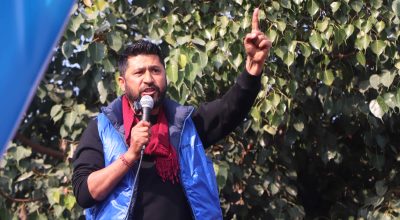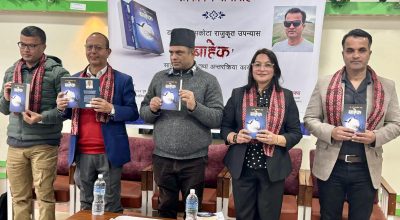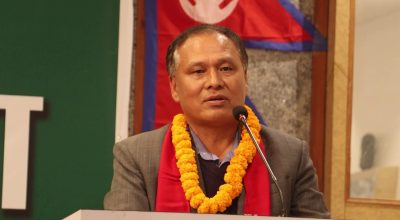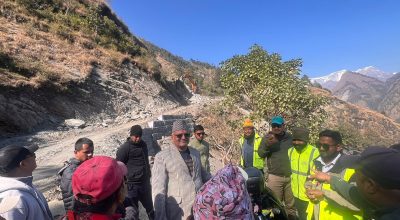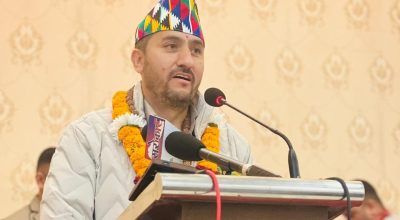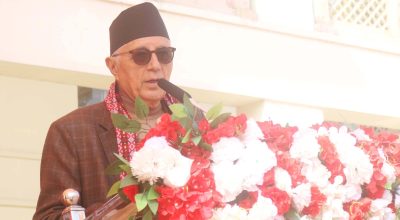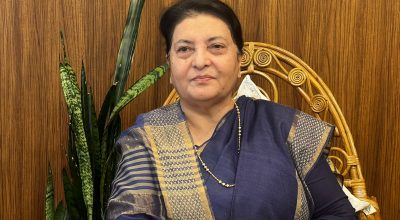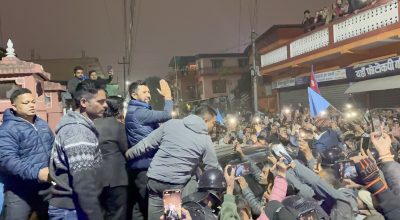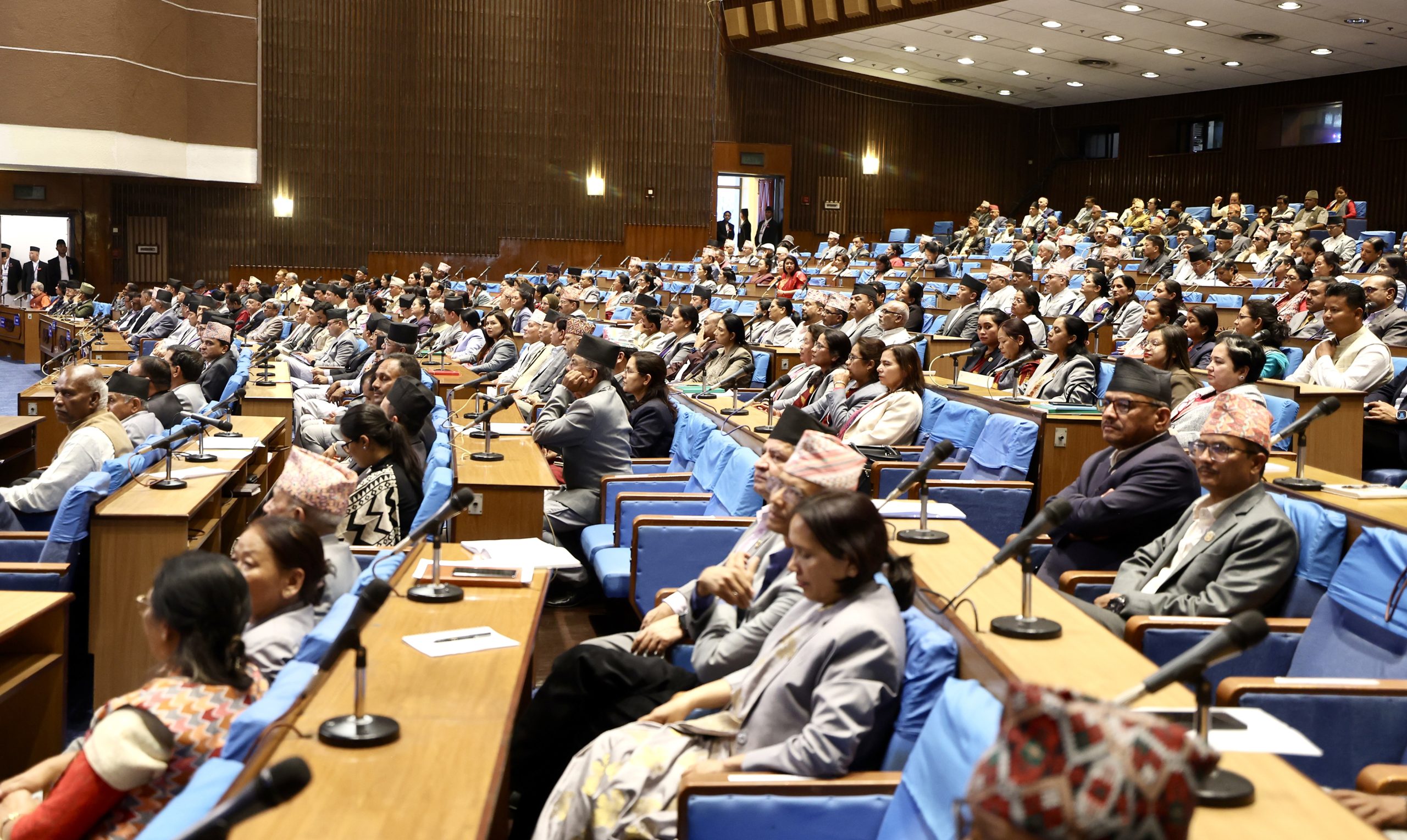
Kathmandu, May 15: The government has said that within the upcoming fiscal year, total electricity connected to the national system will be increased to 4500 MW and per capita electricity consumption will be increased to 450 kwh. The concept of energy mix will be implemented through procurement contract of solar energy.
The policies and programs presented at the Federal Parliament on Tuesday has further said that the construction works of Budhi Gandaki Hydropower Project and Nalsing Gad Storage Project will be moved forward. Pre construction works of Dudh Koshi reservoir-based project will be completed.
Implementation will be started for Upper Arun, Phukot Karnali, Tamakoshi-5, Jagdulla, Chainpur Seti Hydropower projects with financial management.
Ghunsa and Simbuwa Hydropower projects will be moved forward with the concept of Remit Hydro. Feasibility study will be completed for Karnali Chisapani Hydropower project.
High Capacity National and International Electricity Grid Lines will be strengthened, expanded and upgraded. Construction works will be completed of Hetauda-Dhalkebar-Inaruwa corridor transmission line.
Construction works of New Butwal-Gorakhpur Section Transmission Line will be moved forward. Construction of Inaruwa-Purniya and Dododhara-Bareli cross-border transmission line will be started preparing investment modalities.
Electrification of areas not connected to national electricity system and areas without access to electricity will be done through micro and small hydroelectricity, solar and wind energy technology. Within the next fiscal year, electrification will be done in Karnali and the rest of the Far West region. Power distribution substations will be automated. In coordination with local level, smart meters will be distributed.
Concessions will be provided to electricity on the consumption of electricity to irrigation, agriculture and agriculture-based industries. Biogas, electric stove, improved stove and clean and affordable technology will be promoted and expanded to replace traditional energy and LP gas.
Legal and institutional arrangements will be made for the safe and effective use of information and communication technology and systems. Digital Nepal Framework will be revised. Service delivery will be made effective through restructuring of concerned agencies related to information technology.
A business continuity plan for sensitive infrastructure related to information and communication for uninterrupted operation of public services will be implemented. National Artificial Intelligence strategy will be prepared and a feasibility study for its use will be carried out.
Laws related to digital good governance and protection of personal data will be formulated. Work procedure of business will be restructured by formulating digital good governance blueprint and strategy. Internet and data exchange platform will be created to establish interoperability between digital systems. In collaboration with local level, Citizen Service Centre will be made operational to provide public services extended by various agencies through one location.
Broadband services will be made qualitative, easily reachable and safe. To make high speed internet services available at the centres of all local levels and ward centres, expansion works of high-capacity optical fibre will be expedited. Satellite based internet service will be commenced in the remote and difficult to access regions.
Institutional arrangements will be made to make cyber security related investigation, countermeasures and public awareness activities effective. Access to information technology will be extended to women, minorities and backward classes, regions and communities by expanding digital literacy.
Nepal’s own satellite
Initiation will be taken to install Nepal’s own satellite. Operational standards related to the establishment and operation of data centres will be formulated. Initiation will be taken to establish Information Technology National Knowledge Park.
Information Technology System to be used by public entities will be made secured and reliable by formulating its standards. Technical audit of information technology system including hardware, software, network, cyber security being used in public entities will be conducted by putting in place appropriate mechanism. Policy will be taken to develop systems and software by the government sector and give preferences to nationally developed software to be used in public entities.
Considering information technology as the basis of digital transformation, the next decade will be observed as the information technology decade to achieve socioeconomic transformation and prosperity. Nepal will be developed as a global information technology hub by encouraging the development of information technology industry as a major sector of employment and export of services. At least 5,000 jobs will be created by running information technology workstations at appropriate locations in Kathmandu Valley and each province.
Postal services will be integrated with e-commerce
Arrangements will be made for security printing such as excise duty stickers, postal stamps, driving license and passports within the country by ensuring modern, qualitative and competitive printing services. Postal services will be restructured and integrated with ecommerce, making them agile, efficient and information technology friendly.
Policy, legal and structural reforms will be taken for the professional development of the mass communication sector. The use of social media will be made dignified and managed. Media literacy campaign will be launched. Rural journalism based on mother tongue will be promoted.
TV, FM and ISPs will be encouraged to merge
Policy will be taken to establish and operationalize media villages in all provinces. Preparatory work for the establishment of Krishnasen Media Village in Dang will be started in collaboration with Lumbini province. Television and F.M., and internet service providers will be encouraged to merge, transfer ownership and relocate.
One House One Tap
Drinking water programs will be implemented to make availability of clean, qualitative and reliable water facilities throughout the country. The quality of drinking water being distributed by various sectors will be tested and regulated. “One House One Tap” program will be implemented while conserving underground and surface resources.
A detailed study will be conducted to supply drinking water through mass distribution system in Terai Madhes region, and arrangement will be made to provide drinking water by installing deep tube wells. The program will be conducted in collaboration with the provincial and local levels to protect and restore water resources that are drying up in the hilly areas.
Water supply will be arranged gradually outside the ring road area of Kathmandu and in the areas connected to Araniko Highway in Bhaktapur District by arranging year-round regular supply of water from Melamchi Water Supply Project. Arrangements will be made to collect and distribute water from the sources of watershed areas including Shivpuri National Park in order to sustainably solve the drinking water problem in Kathmandu Valley.
Sanitation and hygiene programs will be implemented with the coordination of all three tiers of government and the participation of citizens. Waste water treatment plants will be constructed and operationalized in Kathmandu Valley and in other big cities to keep rivers and water sources free from pollution. Environmental cleanliness will be promoted in big cities including cities in border areas by studying the good practices of other countries.
In order to immediately deal with damage caused by natural calamities while sustainably managing water supply and sanitation projects, mandatory insurance will be arranged for the projects that have been completed and are in operation in coordination and cooperation with all three tiers of government.





